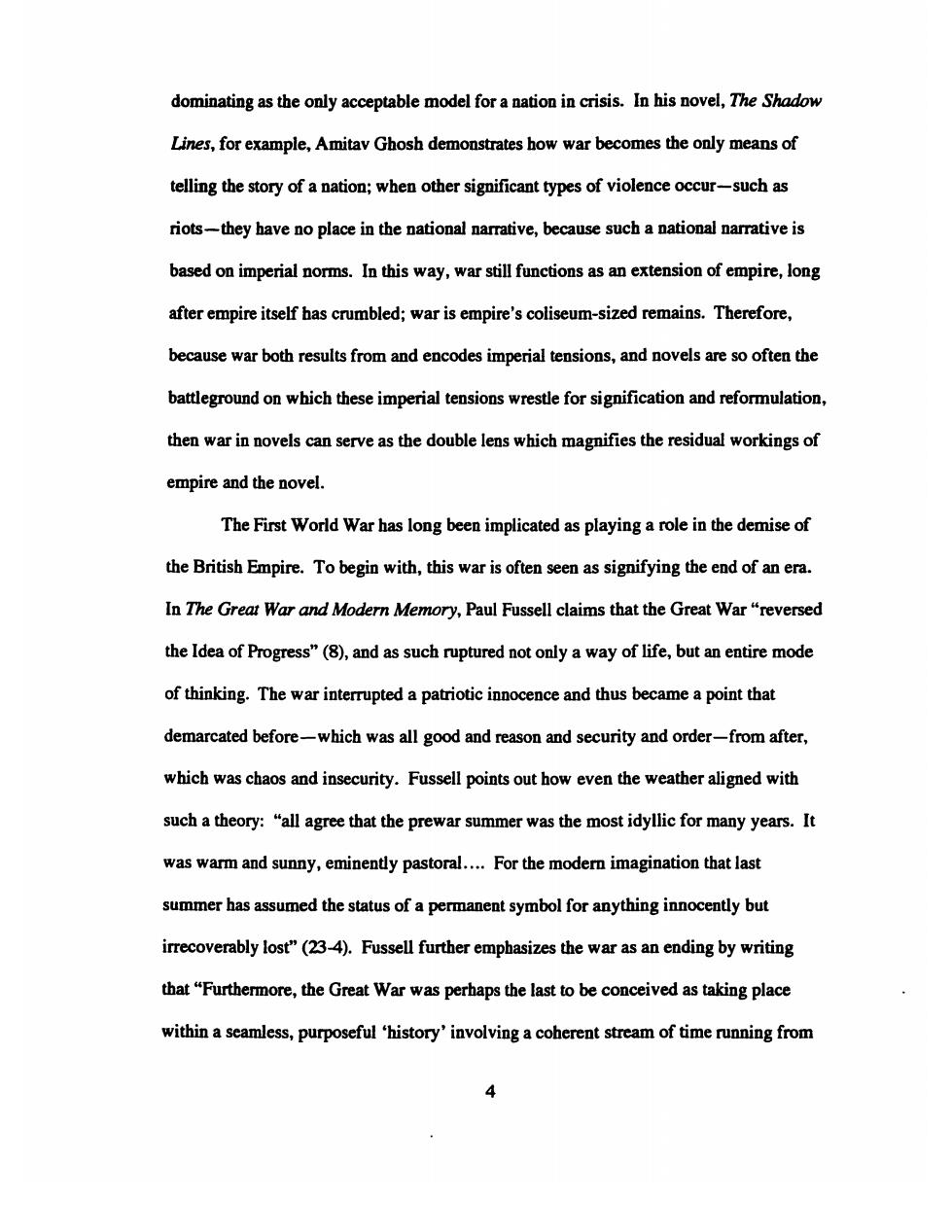正在加载图片...

dominating as the only acceptable model for a nation in crisis.In his novel,The Shadow Lines,for example,Amitav Ghosh demonstrates how war becomes the only means of telling the story of a nation;when other significant types of violence occur-such as riots-they have no place in the national narrative,because such a national narrative is based on imperial norms.In this way,war still functions as an extension of empire,long after empire itself has crumbled;war is empire's coliseum-sized remains.Therefore, because war both results from and encodes imperial tensions,and novels are so often the battleground on which these imperial tensions wrestle for signification and reformulation, then war in novels can serve as the double lens which magnifies the residual workings of empire and the novel. The First World War has long been implicated as playing a role in the demise of the British Empire.To begin with,this war is often seen as signifying the end of an era. In The Great War and Modern Memory,Paul Fussell claims that the Great War"reversed the Idea of Progress"(8),and as such ruptured not only a way of life,but an entire mode of thinking.The war interrupted a patriotic innocence and thus became a point that demarcated before-which was all good and reason and security and order-from after, which was chaos and insecurity.Fussell points out how even the weather aligned with such a theory:"all agree that the prewar summer was the most idyllic for many years.It was warm and sunny,eminently pastoral....For the modern imagination that last summer has assumed the status of a permanent symbol for anything innocently but irrecoverably lost"(23-4).Fussell further emphasizes the war as an ending by writing that "Furthermore,the Great War was perhaps the last to be conceived as taking place within a seamless,purposeful 'history'involving a coherent stream of time running from